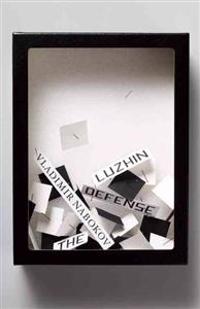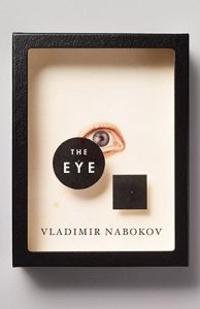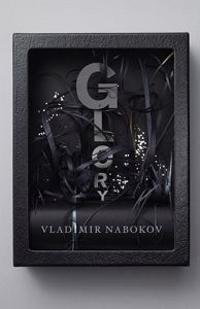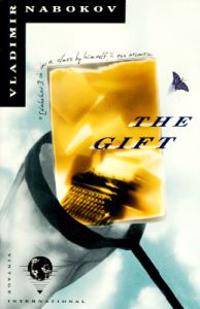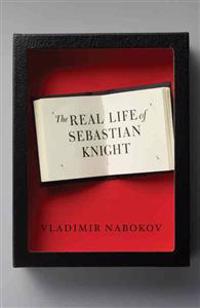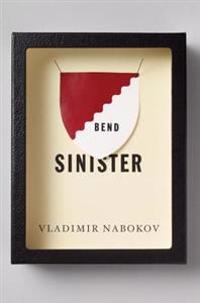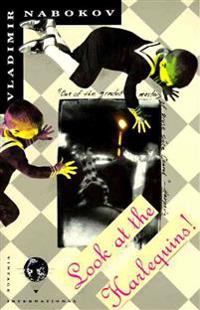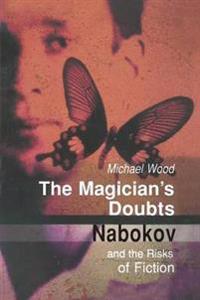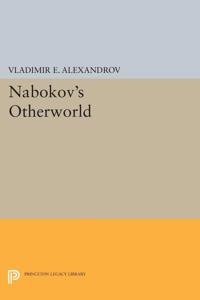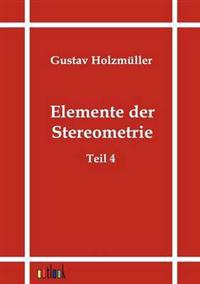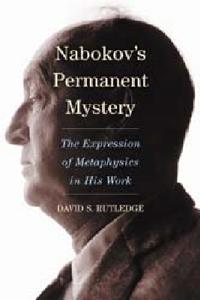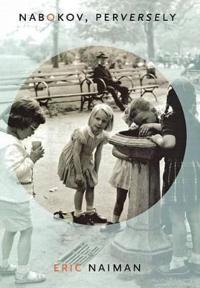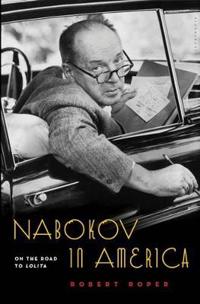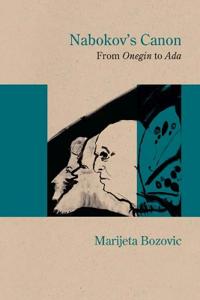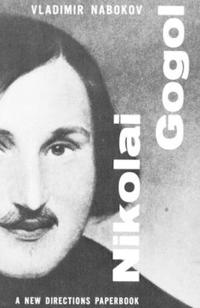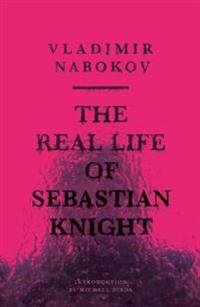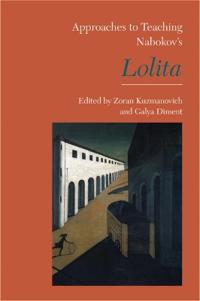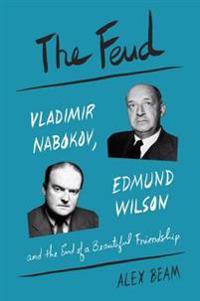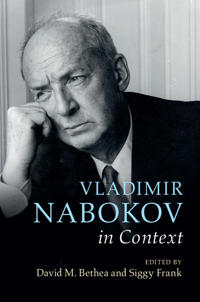Defense (Häftad)
avNabokov
ISBN: 9780679727224 - UTGIVEN: 199212Nabokov's third novel, The Defense, is a chilling story of obsession and madness. As a young boy, Luzhin was unattractive, distracted, withdrawn, sullen--an enigma to his parents and an object of ridicule to his classmates. He takes up chess as a refuge from the anxiety of his everyday life. His t[...]
The Eye (Pocket)
avVladimir Vladimirovich Nabokov
ISBN: 9780679727231 - UTGIVEN: 199009Nabokov's fourth novel, The Eye is as much a farcical detective story as it is a profoundly refractive tale about the vicissitudes of identities and appearances. Nabokov's protagonist, Smurov, is a lovelorn, excruciatingly self-conscious Russian émigré living in prewar Berlin, who commits suic[...]
Glory (Häftad)
avVladimir Nabokov
ISBN: 9780679727248 - UTGIVEN: 199111Glory is the wryly ironic story of Martin Edelweiss, a twenty-two-year-old Russian emigre of no account, who is in love with a girl who refuses to marry him. Convinced that his life is about to be wasted and hoping to impress his love, he embarks on a "perilous, daredevil project"--an illegal attemp[...]
The Gift (Häftad)
avVladimir Nabokov
ISBN: 9780679727255 - UTGIVEN: 1991-05The Gift is the last of the novels Nabokov wrote in his native Russian and the crowning achievement of that period in his literary career. It is also his ode to Russian literature, evoking the works of Pushkin, Gogol, and others in the course of its narrative: the story of Fyodor Godunov-Cherdynts[...]
The Real Life of Sebastian Knight (Pocket)
avVladimir Vladimirovich Nabokov
ISBN: 9780679727262 - UTGIVEN: 199202"Nabokov writes prose the only way it should be written, that is, ecstatically." -- John UpdikeThe Real Life of Sebastian Knight is a perversely magical literary detective story -- subtle, intricate, leading to a tantalizing climax -- about the mysterious life of a famous writer. Many people knew th[...]
Bend Sinister (Häftad)
avVladimir Nabokov
ISBN: 9780679727279 - UTGIVEN: 199004The first novel Nabokov wrote while living in America and the most overtly political novel he ever wrote, Bend Sinister is a modern classic. While it is filled with veiled puns and characteristically delightful wordplay, it is, first and foremost, a haunting and compelling narrative about a civiliz[...]
The Annotated Lolita (Pocket)
avVladimir Vladimirovich Nabokov
ISBN: 9780679727293 - UTGIVEN: 1991-04-01The textural discussion accompanying this novel examines the thematic and technical elements which make it a literary classic[...]
Vladimir Nabokov (Pocket)
avBrian Boyd
ISBN: 9780691024707 - UTGIVEN: 1993-01This first major critical biography of Vladimir Nabokov, one of the greatest of twentieth-century writers, finally allows us full access to the dramatic details of his life and the depths of his art. An intensely private man, Nabokov was uprooted first by the Russian Revolution and then by World War[...]
Vladimir Nabokov (Pocket)
avBrian Boyd
ISBN: 9780691024714 - UTGIVEN: 1993-01This story of Nabokov's life continues with his arrival in the United States in 1940. He found that supporting himself and his family was not easy - until the astonishing success of Lolita catapulted him to world fame and financial security.[...]
The Magician's Doubts: Nabokov and the Risks of Fiction (häftad)
ISBN: 9780691048307 - UTGIVEN: 1998-01
As a child in Russia, Vladimir Nabokov enjoyed conjuring: "I loved doing simple tricks--turning water into wine, that kind of thing." In this engrossing book Michael Wood explores the blend of arrogance and mischief that makes Nabokov such a fascinating and elusive master of fiction. Wood argues[...]Nabokov's Pale Fire (Pocket)
avBrian Boyd
ISBN: 9780691089577 - UTGIVEN: 2001-10-15Leads the reader step-by-step, gradually revealing the relationship between Vladimir Nabokov's ethics, aesthetics, epistemology, and metaphysics. This work shows how Nabokov's interest in discovery springs in part from his work as a scientist and scholar, and draws comparisons between the processes [...]
Nabokov's Otherworld
ISBN: 9780691602424 - UTGIVEN: 2014-07A major reexamination of the novelist Vladimir Nabokov as "literary gamesman," this book systematically shows that behind his ironic manipulation of narrative and his puzzle-like treatment of detail there lies an aesthetic rooted in his intuition of a transcendent realm and in his consequent redefin[...]
Nabokov's Permanent Mystery
ISBN: 9780786460762 - UTGIVEN: 2010-11This critical text examines the ways in which Vladimir Nabokov, one of the twentieth century's great writers, structured his works to encapsulate his metaphysical beliefs. It draws examples from Nabokov's novels, stories and nonfiction, revealing a startling consistency in his beliefs over the cours[...]
Nabokov in America (Inbunden)
avRobert Roper
ISBN: 9780802743633 - UTGIVEN: 2015-08The author of the immortal Lolita and Pale Fire, born to an eminent Russian family, conjures the apotheosis of the high modernist artist: cultured, refined--as European as they come. But Vladimir Nabokov, who came to America fleeing the Nazis, came to think of his time here as the richest of his lif[...]
The Real Life of Sebastian Knight (Häftad)
avVladimir Nabokov
ISBN: 9780811217507 - UTGIVEN: 2008-07Approaches to Teaching Nabokov's Lolita (Häftad)
avZoran Kuzmanovich
ISBN: 9780873529433 - UTGIVEN: 2008-01Widely considered one of the twentieth century's great novels, Lolita maintains an established place on the syllabus--in English departments, Russian and Slavic departments, and departments of comparative literature. Yet its particular mix of narrative strategies, ornate allusive prose, and troubles[...]
The Feud: Vladimir Nabokov, Edmund Wilson, and the End of a Beautiful Friendship
ISBN: 9781101870228 - UTGIVEN: 2016-12The Feud is the deliciously ironic (and sad) tale of how two literary giants destroyed their friendship in a fit of mutual pique and egomania.
In 1940, Edmund Wilson was the undisputed big dog of American letters. Vladimir Nabokov was a near-penniless Russian exile seeking asylum in the States. [...]Vladimir Nabokov in Context
ISBN: 9781107108646 - UTGIVEN: 2018-05Vladimir Nabokov, bilingual writer of dazzling masterpieces, is a phenomenon that both resists and requires contextualization. This book challenges the myth of Nabokov as a sole genius who worked in isolation from his surroundings, as it seeks to anchor his work firmly within the historical, cultura[...]

